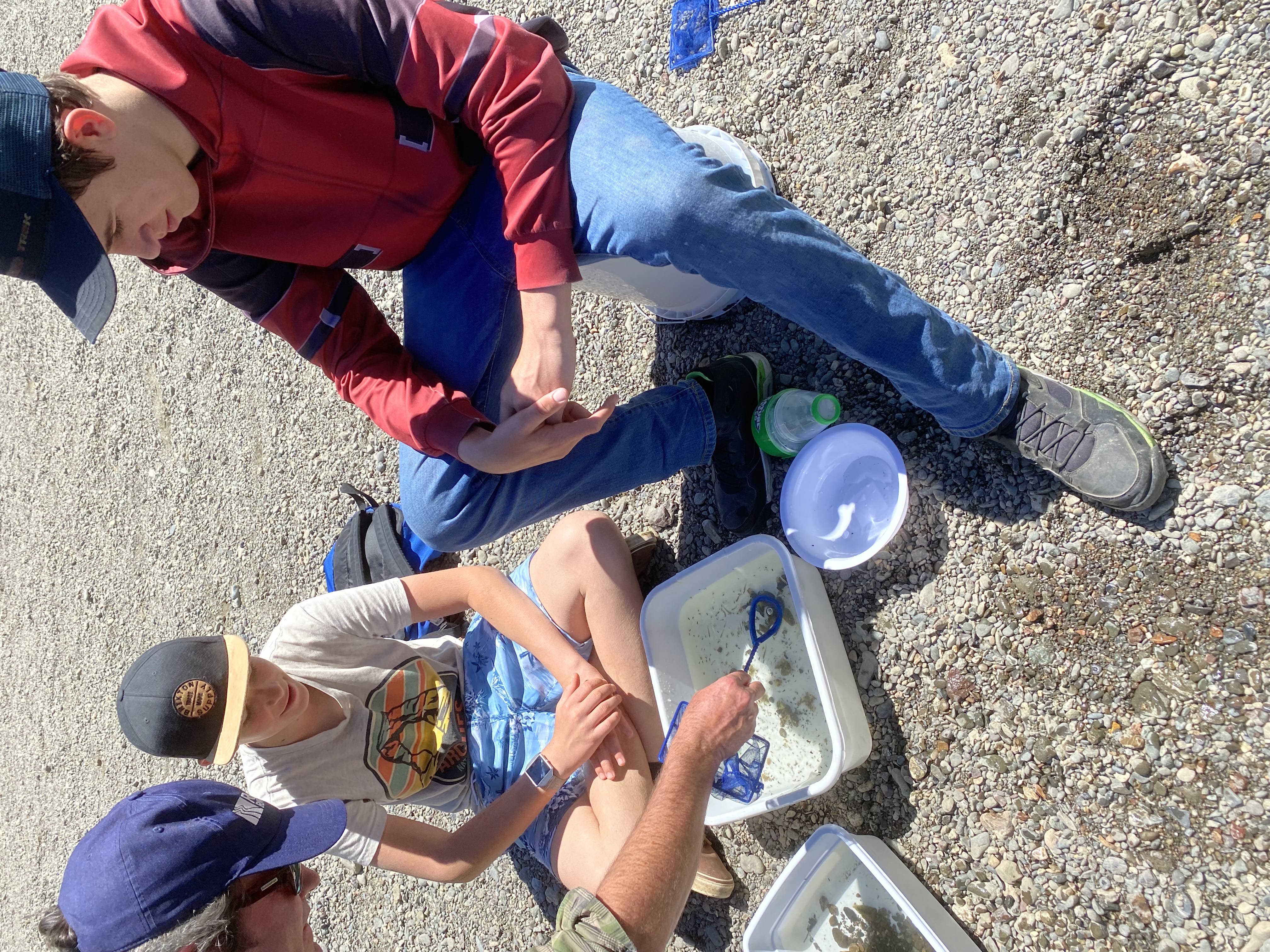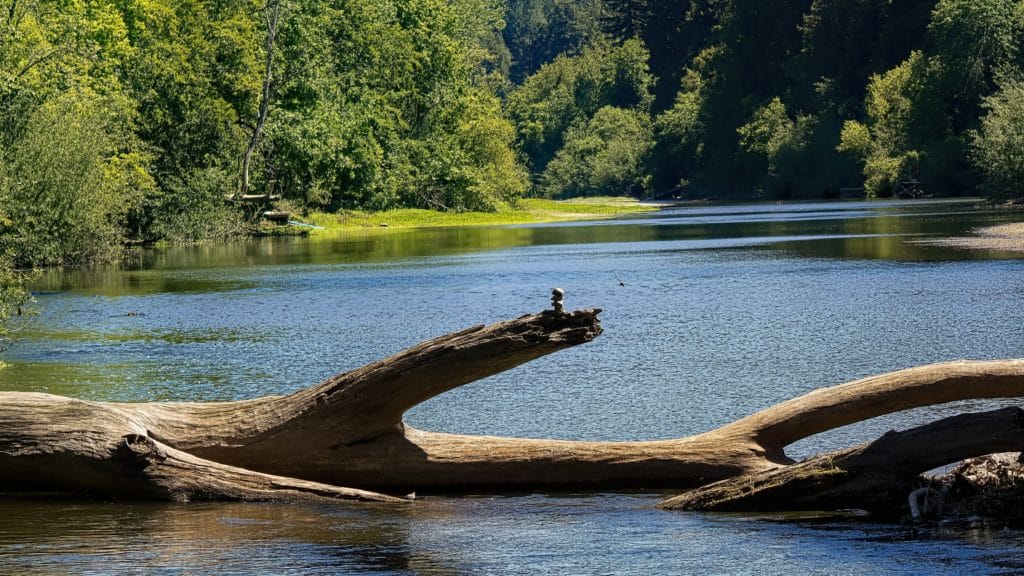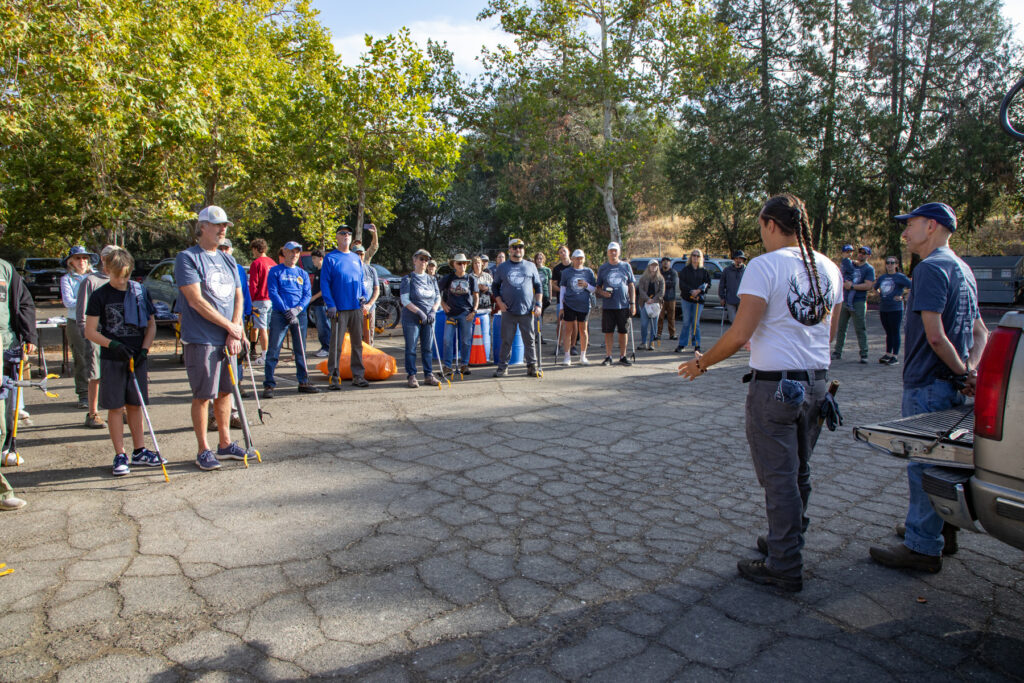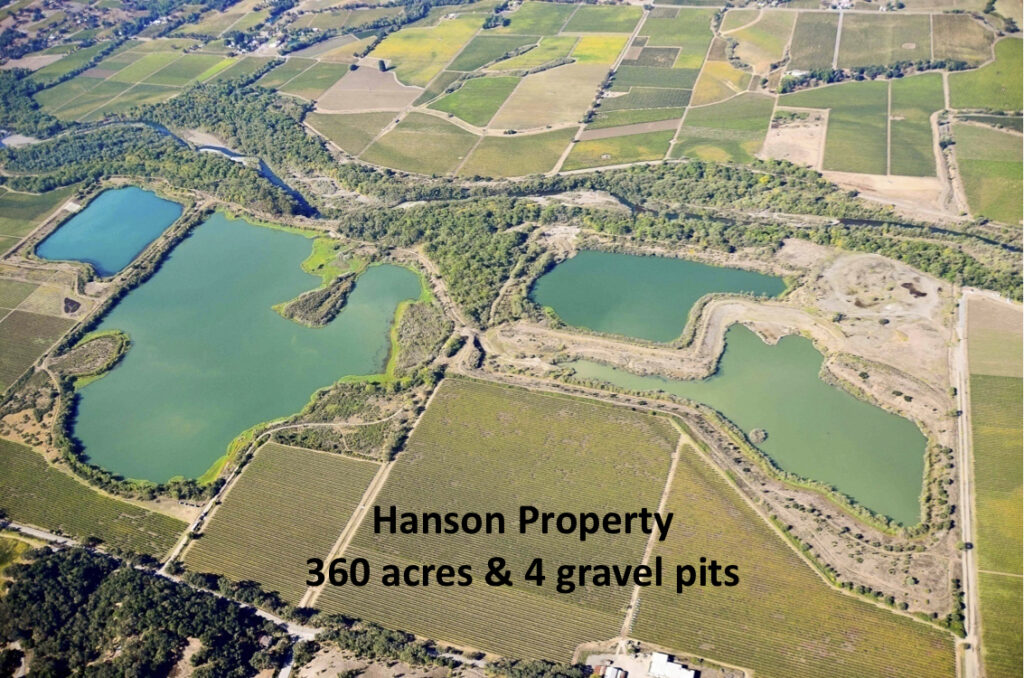This past month, Russian Riverkeeper staff visited the Sonoma County Regional Parks program Youth Exploring Sonoma, YES River! The program began in the summer of 2017, and connects youth between the ages of 13-18 to their local river and marine environment. The program provides opportunities for outings combining exposure to nature and outdoor fun with themes of coastal and river system ecology, local history, and career exploration in the environmental field.
past month, Russian Riverkeeper staff visited the Sonoma County Regional Parks program Youth Exploring Sonoma, YES River! The program began in the summer of 2017, and connects youth between the ages of 13-18 to their local river and marine environment. The program provides opportunities for outings combining exposure to nature and outdoor fun with themes of coastal and river system ecology, local history, and career exploration in the environmental field.

On July 6th, 2022, the 20 participants, program leaders and Russian Riverkeeper staff visited Sunset Beach on the Russian River in Forestville. This particular beach in the lower Russian River area is a preferred spot for locals and tourists alike to spend some time enjoying the river. In this case, it became a favorite spot to determine water quality by examining the presence or absence of very tiny organisms in the water. After chatting about what Russian Riverkeeper staff do to help the river and how we got to where we are today, Birkin Newell, staff Biologist, led the water quality experiment. He guided the team in capturing bugs straight from the river using small nets held directly in the water current. By slightly disturbing the rocks and dirt in the bottom of the river, organisms flowed freely into the net for capture and examination in larger holding bins. (All creatures were released back to their home at the conclusion of the activity). Students used magnifying glasses and identification data to determine which organisms were found in the Russian River water. One student even caught a small Pikeminnow!

Students were able to determine that water quality at this particular location on the Russian River was high because of the presence of Mayfly and Caddisfly larvae. If these organisms were not found in our samples, we might be able to infer poor water quality because of an inability to survive in polluted conditions. We did not find any leeches which would have indicated poor water quality.
Anyone can re-create this hands-on project done with minimal materials and experience using the Macroinvertebrate Identification Key by Stroud Water Research Center to determine water quality naturally, just by examining what is living in the water.





